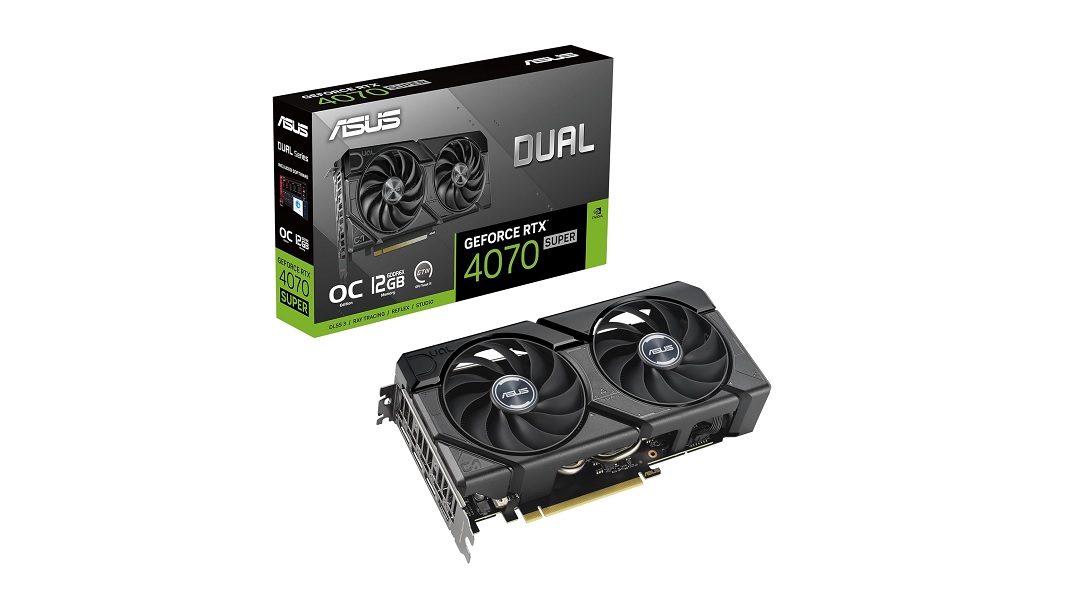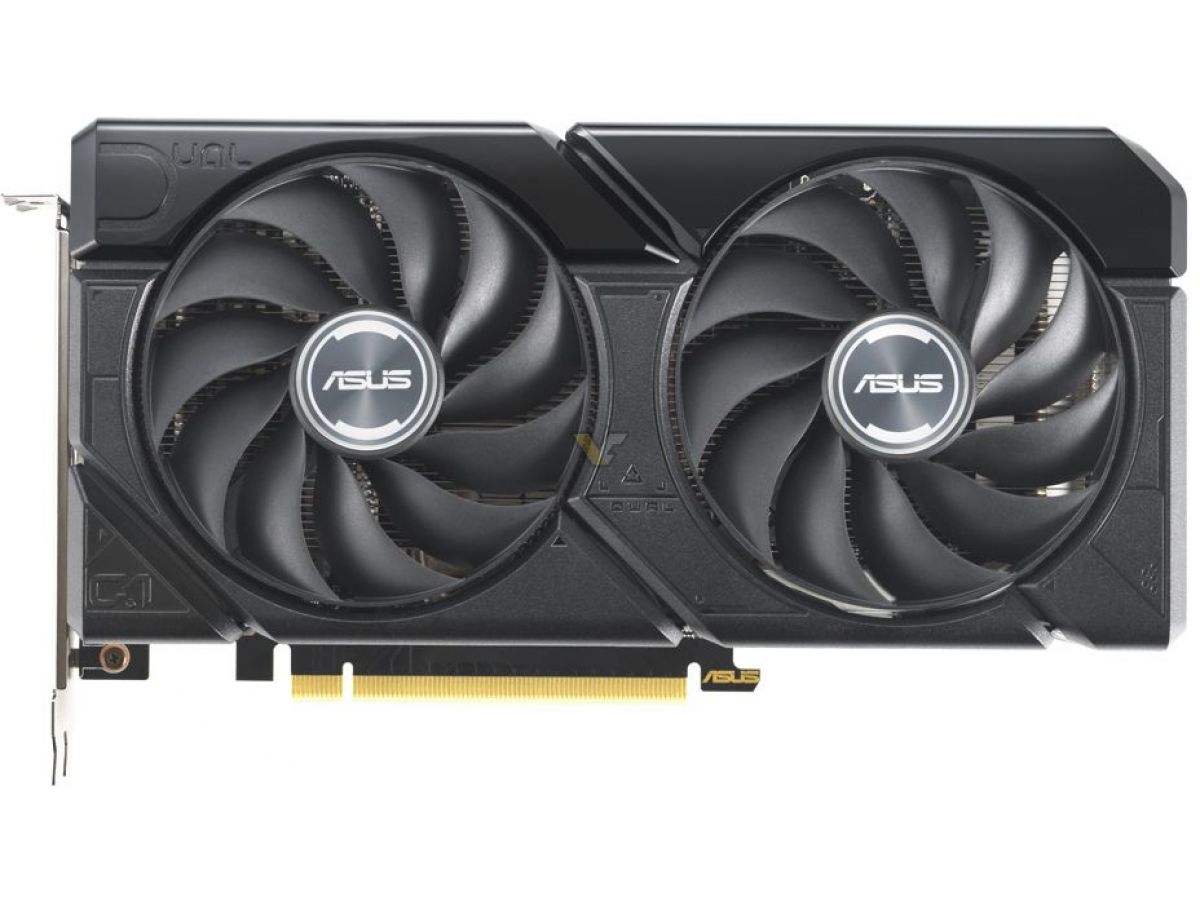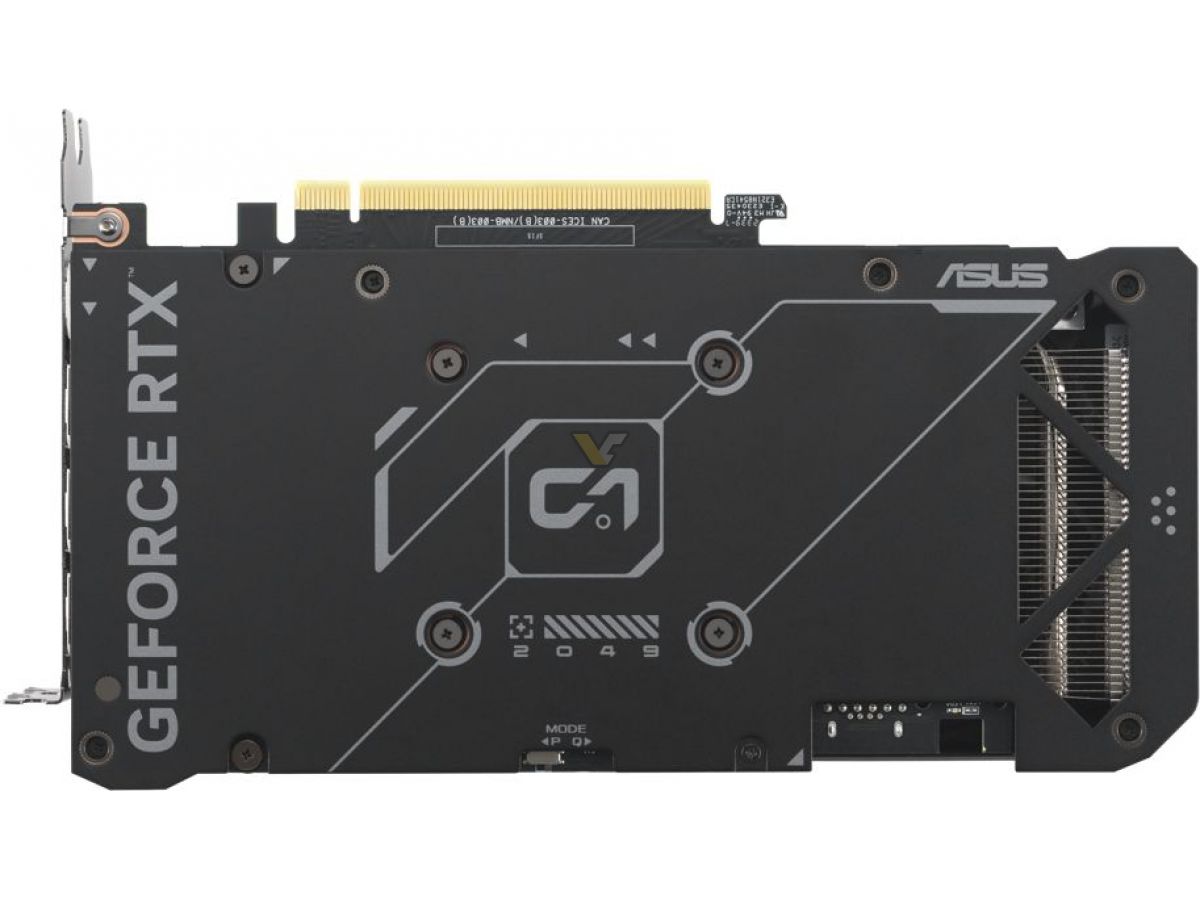Nvidia's Super GPUs arrive soon — leaked images of Asus' GeForce RTX 4070 Super 12GB show a 16-pin power connector
A plethora of RTX 40 Super Series GPUs are expected next month!

As we've reported, Nvidia is rumored to launch RTX 40 Super series graphics cards in January. While Nvidia will have its Founder's Edition launched with its respective models, companies like Asus will have a few non-reference versions, as we see in new leaked images of an RTX 4070 12GB GDDR6X Dual OC (via @momomo).
The ASUS RTX 4070 OC Edition uses an 8-pin connector for additional power, but it seems the manufacturer decided to use the 16-pin 12VHPWR connector for the RTX 4070 Super OC instead. The RTX 4070 Founder's Edition also used the 16-pin standard, and hence, there's no reason to believe it wouldn't be the same case with the RTX 4070 Super. Based on our reviews, the RTX 4070 Founders Edition at max had an average draw of 203.8 watts while playing A Plague Tale: Requiem, the highest average power draw.
Like its predecessor, it looks like Nvidia is sticking with 12GB GDDR6X as a memory configuration for the RTX 4070 Super. It is rumored to use an AD104-350 core with 7168 cores, placing itself between RTX 4070 and RTX 4070 Ti. We'll know for sure when the respective graphics cards are announced.



There are some differences in the shroud design, with a visible heatpipe on the side and additional cut-outs between the screws below the video out on the rear I/O plate. Judging by other photos of the RTX 4070 Super OC Edition, it seems the heatsinks are now aligned for the airflow to flow from front to rear, rather than sideways like on the Asus RTX 4070 OC Edition.
Based on the leaked schedule and assuming Nvidia hasn't made any changes, the RTX 4070 Super will be announced on Jan. 8 — a few weeks from now — and ready for retail on Jan. 17.
Get Tom's Hardware's best news and in-depth reviews, straight to your inbox.

Roshan Ashraf Shaikh has been in the Indian PC hardware community since the early 2000s and has been building PCs, contributing to many Indian tech forums, & blogs. He operated Hardware BBQ for 11 years and wrote news for eTeknix & TweakTown before joining Tom's Hardware team. Besides tech, he is interested in fighting games, movies, anime, and mechanical watches.
-
Alvar "Miles" Udell Replybut it seems the manufacturer decided to use the 16-pin 12VHPWR connector for the RTX 4070 Super OC instead
The decision probably went like this:
nVidia: You're using 12VHPWR on the 4070 Super or you won't be making nVidia GPUs anymore.
ASUS: Deal! -
Skramblr What many people do not know. If you refer to the PCIe CEM specs, the 12VHPWR is basically obsoleted and replaced by a newer version called 12V-2x6 power connector. I'd be surprised if Nvidia is continuing to use the problematic 12VHPR plug design. TomsHW even even did a story about the new connector https://www.tomshardware.com/news/12v-2x6-connector-testedReply
I just noticed the article was written bay a 'free lance' author, so probably not one of Tom's HW knowledgeable engineers that would have noticed this likely error.
-Dan -
Alvar "Miles" Udell "12VHP" is probably going to be just the community colloquial name for the 12 pin power plug even though it's technically not correct, like how people say "4K" even though "true" 4K is 4096 \00d7 2160 and "consumer" 4K (UHD) is 3840x2160, and "1440p" instead of "QHD/2560x1440"Reply -
thestryker I wouldn't be surprised if nvidia was pushing board partners towards the 16-pin connector for any card that would require more than a single PCIe power connector. Given that the 4070 is a 200W part and 4070 Ti 285W it wouldn't be a stretch for the 4070 Super to fall into that category.Reply -
HaninTH "4K" should be 8192 \00d7 4320p, not this cheat 2K (2160p) res that the industry has given us. If they knew they couldn't continue their cadence after 1080p, they should never have standardized on using the vertical resolution as the signifier and instead using the horizontal resolution as they do now.Reply -
Sleepy_Hollowed Reply
That resolution naming of p came from television standards and not from actual displays.HaninTH said:"4K" should be 8192 \00d7 4320p, not this cheat 2K (2160p) res that the industry has given us. If they knew they couldn't continue their cadence after 1080p, they should never have standardized on using the vertical resolution as the signifier and instead using the horizontal resolution as they do now.
In computing resolutions were always full specifications for horizontal and vertical because of the variation of displays and computing standards.